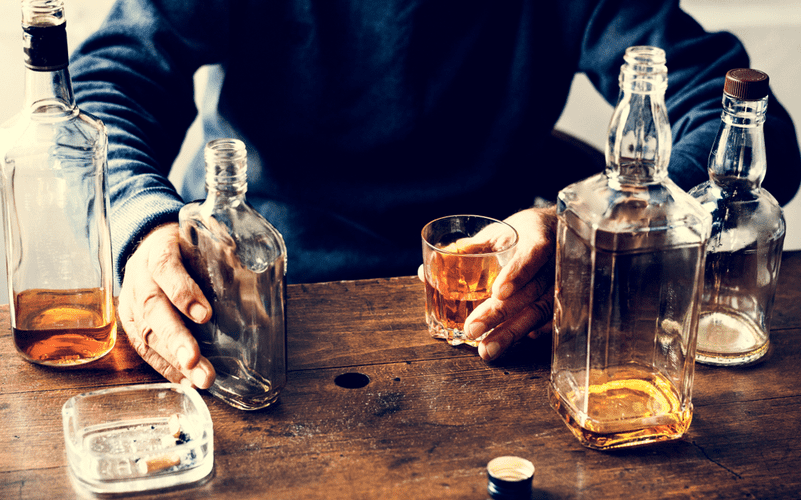Acknowledging And Releasing Guilt And Shame In Addiction Recovery
Content
- Healthy Habits And Self
- Core Benefits Of Inpatient Drug Addiction Treatment: Support, Structure, Supervision, Substance
- What Are The Roles Of Guilt And Shame In Drug Addiction
- Get Help With Alcohol Addiction
- Why Is Shame So Painful?
- Addressing Lingering Guilt And Shame In Recovery
- Alcohol Abuse Therapy For Overcoming Shame
Here are 5 reasons to let go of shame for the good of your addiction recovery. Ignoring your feelings, as complicated as they may be, is dangerous and unhelpful. What tends to happen is that these feelings are bottled up so tightly to the point where everything pops. When this happens, you may turn to methods that provide immediate relief, like drug or alcohol abuse.

If you believe you are a bad person or unlovable, think again. A pattern of focusing on such thoughts can be detrimental to your overall well-being and your recovery. The self-punishment you endure when you dwell in feelings of guilt and shame can lead to a downward spiral of negative thinking.
Healthy Habits And Self
Adverse childhood experiences can greatly affect a person’s physical and mental well-being. This may require revisiting shame-inducing events or past messages and re-evaluating them from a new perspective. Overcoming shame and codependency requires a safe environment where you can be vulnerable, express yourself, and receive acceptance and empathy. Then, you’re able to internalize a new experience, begin to revise your beliefs about yourself, and build self-esteem.
You probably have felt and will continue to feel shame at various times in your life. But you feel shame when you believe you’re not enough, usually because parents or peers keep telling you so. Your confidence suffers from this deep-seated emotion that affects the way you see yourself. Being kind to ourselves is essential to breaking the cycle of shame.
Core Benefits Of Inpatient Drug Addiction Treatment: Support, Structure, Supervision, Substance
When we start relying on substances and compulsive behaviors to help us get through all life experiences and then build a tolerance and dependence on them, it turns into addiction. Shame and guilt can feel very similar but there is a difference. Guilt is usually the sense that you have done something wrong—that you have gone against your moral code in some way.
“I spent $210 for an online alcohol recovery program” – Vox.com
“I spent $210 for an online alcohol recovery program”.
Posted: Sun, 12 Dec 2021 08:00:00 GMT [source]
The more aggressive and contemptuous these feelings are, the stronger the shame. When dealing with guilt, it’s important to acknowledge these feelings, listen to them, and learn from them. However, after you have absorbed the lesson, you need to release these thoughts, or they will stand in the way of your recovery. Ultimately, shame-based thinking is self-destructive. It eats away at your self-worth and causes depression — and as you probably know already, feeling depressed and bad about yourself is a common trigger for using. People who feel guilty about something will do what it takes to make things right. PTSD is a mental health disorder common amongst people who have experienced intense trauma in the past.
What Are The Roles Of Guilt And Shame In Drug Addiction
Now is the time to face those feelings of guilt and move forward. One common feeling that most people recovering from a substance use disorder deal with is lingering guilt. At the center of many mental health issues — including addiction and codependency — lies shame. If shame is preventing you from getting or staying sober, learn more about the holistic addiction treatment offered at Alpine Recovery Lodge. Though you might feel like you “deserve” to feel shame for your actions, punishing yourself does not help the people you may have hurt, nor does it help yourself for that matter.
Once you identify why you are experiencing shame and what is making these feelings worse, you can address these factors and find ways to reduce the power they hold over you. Through addiction treatment and counseling, many people are able to overcome the underlying causes of their guilt and shame and go on to a full recovery. Constantly thinking about past mistakes, big or small, only worsens the negative emotions of guilt and shame. Left unchecked, it can increase levels of depression. Unbridled shame and guilt are destructive and have almost no upside. We won’t ever be able to change the past, but we can accept responsibility for our actions, learn from our mistakes and focus our energy into living a more productive, healthier lifestyle. At one time, no one ever mentioned the word “cancer.” It was a medical condition that wasn’t discussed.
Get Help With Alcohol Addiction
Steps Recovery is taking steps in the right direction. Embracing this logic for years and decades will form a certain type of mind. By rationalizing child abuse as a just punishment, one’s perception could be warped regarding anything else. As a result, a child that blames themselves for abuse, will grow up and be more accepting when someone abuses them. We can meet you where you are in your fight for sobriety. The Blackberry Center, you will have the opportunity to begin the journey to lifelong recovery in our state-of-the-art facilities.
Not, “I did bad things,” but, “I’m a bad person.” Shame leads to feelings of worthlessness and helplessness, that the problem is a fundamental character flaw that we are powerless to change. Nothing could be further from the truth, because we do have the power to change. •People with substance dependency often report feelings of guilt and shame.
Why Is Shame So Painful?
Ask forgiveness of loved ones, then forgive yourself and move on. It’s possible to overcome toxic shame and change the way you think. You also need self-awareness, mindfulness, and patience.
Aaron Dougherty works as an inpatient substance use disorder counselor withdual diagnosispatients. In his work, he regularly encounters patients who are dealing with feelings about the past. Sober living houses Even without an addiction, people who seek out treatment for mental illnesses such as depression are often portrayed in popular media as weak or dangerous to themselves and others.
Depending on how long you’ve been drinking or using drugs, it could have been quite some time since you’ve been clean and sober. Seeking help for drug addiction can be even more difficult because you must acknowledge that you made some bad choices. These bad choices can lead to guilt and shame both during and after recovery. While guilt and shame in addiction recovery are normal, you must not let them overwhelm you and become destructive.
Addressing Lingering Guilt And Shame In Recovery
It shows that you’re making progress towards healing by realizing that you aren’t happy with the way things you’ve done while under the influence of alcohol. Focusing more than a few minutes on feelings of shame can quickly spiral out of control. As soon as you start to dwell on such thought patterns, reach out to a friend or how to overcome shame and guilt in recovery family member. They don’t need to try to prove to you that you have nothing to be shameful about, but rather should listen to the way you feel. If you feel depressed or unable to reach other people, turn to your counselor for support. Many people, even those years into recovery, feel shame over drug and alcohol dependency.
- Letting go of shame is a process that takes time, so you may still feel like you’re working on it long after rehab ends.
- Although you probably started this process back in rehab, many people continue to make their amends while enrolled in IOP and sober living.
- According to some research, “shaming dynamics” can affect the quality of a child’s attachment in the first 6 months of life.
Many addicts in early stages of recovery feel overwhelmed with feelings of guilt and shame. “Regret is a really important piece, and it comes up a lot ingrief workwhen people are revealing past emotions and feeling a lot of guilt. Can shift that over to regret,” she said, explaining that if someone knows now that they might feel guilty or remorseful, they can choose to make a different choice going forward. Forgiving the people in your life that have wronged you helps you heal. Perhaps you need to make amends for things you’ve done wrong to them as well; and, if so, making amends can be a freeing experience.
Hateful self-talk is damaging and only amplifies any negative emotions you may be feeling. When you begin feeling guilty or shameful, avoid hateful self-talk like “I’m so stupid. ” or “I can’t do anything right.” This kind of mentality only contributes to worsening feelings that can lead to dangerous coping methods like substance abuse. Once people enter addiction treatment and are sober, they begin to see more clearly and are better able to deal with these negative aspects of guilt and shame. Sometimes counseling can help a person get to the bottom of feelings of guilt and shame even beneath the drug addiction. For people in addiction recovery or substance abuse treatment, shame can be a challenging obstacle to overcome.
A deep sense of shame sets up the broader feeling of unworthiness, of being unworthy of love, support, or help. Shame can become toxic to your recovery efforts, even set you up for a relapse. It happens when other people treat you poorly and you turn that treatment into a belief about yourself. You’re most vulnerable to this type of poor treatment during childhood or as a teen. When you feel toxic shame, you see yourself as useless or, at best, not as good as others. There are many ways to approach healing from shame and addiction.
🎧 3 Tips on How to Overcome Guilt, Shame And Regret in Early Recovery (plus bonus tip!) A sober life = feeling all the emotions and in early recovery that can be very triggering.#atheistsinrecovery #addictionrecovery #resiliencehttps://t.co/fmt8I79ql1 pic.twitter.com/8c6F2C1TIe
— AtheistsinRecovery 🛳 (@heydradina) October 4, 2021
Without realizing it, we become continual victims of shame-based thinking. Every day, we re-convince ourselves that we are defective. Our thoughts become riddled with judgment, regret, and images of impending failure. The next step is to develop some compassion for yourself. Work toward accepting that you are human and that you have limitations. When you act in ways that you don’t like, be curious about it rather than critical.
Toxic shame has also been linked to substance abuse, eating disorders, and self-harm. These two emotions are often confused with one another.


